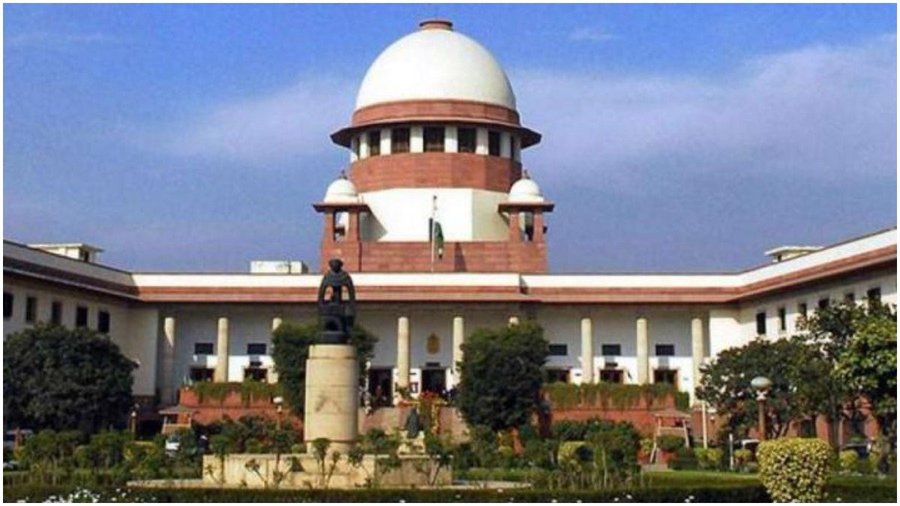NEW DELHI, July 8: The Supreme Court Thursday termed “important” the pleas challenging Constitutional validity of the matrimonial law provisions which empower courts to ask estranged spouses to “cohabit” and “take part in sexual intercourse” to restore conjugal rights and asked the Centre to file its response within 10 days.
A bench of Justices R F Nariman, K M Joseph and B R Gavai listed the pleas for further hearing on July 22 and allowed various intervention applications.
During the brief hearing, Attorney General K K Venugopal, whose assistance was sought by the court in the matter, said he needed time to file written submissions.
Senior advocate Indira Jaising, appearing for the petitioners, said the matter deals with a pure question of law with regard to the validity of section 9 of the Hindu Marriage Act (HMA) and other related provisions and hence the court should give a shorter date.
The bench said it will take up the matter after two weeks.
Advocate Shoeb Alam, appearing for interveners, said that not only the matrimonial laws but certain other provisions under the IPC and other laws need to be dealt with while examining the validity of provisions empowering courts to ask estranged spouses to “cohabit” and restore conjugal rights.
The bench said that it will list all the intervention applications together with the main matter and would hear them on July 22.
The top court was hearing pleas including one filed by Ojaswa Pathak and Mayank Gupta, the students of Gujarat National Law University at Gandhinagar, who have challenged the validity of section 9 of the Hindu Marriage Act (HMA), Section 22 of the Special Marriage Act (SMA) and certain provisions of the Code of Civil Procedure (CPC).
These provisions empower courts to pass a decree of restitution of conjugal rights to an estranged couple.
On January 14 last year, the top court had sought assistance of the Attorney General in the matter.
On March 5, 2019, the top court had referred to a three-judge bench a plea challenging the Constitutional validity of provisions in the matrimonial laws empowering courts to ask estranged spouses to “cohabit”.
The plea has referred to the nine-judge verdict that held privacy as one of the fundamental rights and assailed the legal provisions of the HMA and the SMA, saying that they force mostly unwilling women to cohabit with their estranged husbands.
“Courts in India have understood ‘Conjugal rights’ to have two key ingredients: cohabitation and sexual intercourse. Under the legal scheme in India, a spouse is entitled to a decree directing his other spouse to cohabit and take part in sexual intercourse. He or she is also entitled to coercive measures in the form of attachment of property in case the spouses wilfully disobey the decree of restitution,” the plea said.
The legal framework is “facially neutral” and places a “disproportionate burden on women”, the plea said, adding that it is “based on feudal English law which regarded a woman as ‘chattel’ of her husband”.
“The remedy of restitution of conjugal rights was not recognized by any of the personal law systems of India. The same has its origins in feudal English Law, which at that time considered a wife to be the chattel of the husband. The United Kingdom itself has abolished the remedy of restitution of conjugal rights in 1970,” the plea said.
It is steeped in a patriarchal gender stereotype and is violative of Article 15(1) (prohibition of discrimination on the ground of gender etc) of the Constitution, it said.
The provisions were also violative of the rights to privacy, individual autonomy and dignity of individuals guaranteed under Article 21 (protection of life and personal liberty) of the Constitution, it said.
“The provisions for restitution of conjugal rights are facially neutral in as much as they allow both the husband and the wife to move court. However, in effect, they are deeply discriminatory towards women. The direct and inevitable effect of the provision has to be seen in light of the deeply unequal familial power structures that prevail within Indian society,” said the petition.
Asserting that the right to cohabit was an intimate personal choice, the plea said that the provisions requiring a person to cohabit with another against their will are violative of the Right to Privacy of an individual.
“The right to cohabit or take part in sexual intercourse with another is an intimate personal choice. These continue to exist in each individual – man or woman even after marriage. The scheme for restitution of conjugal rights is violative of the same in as much as it allows a man/woman to take coercive measures (in the form of attachment of property) against his/her spouse who is unwilling to have a conjugal relationship,” the petition said.
The plea said that the validity of a law has to be tested according to the changing times.
“One of the objects for including Section 9 in the Hindu Marriage Act is that a wife can claim periodic payments from her husband who was unwilling to comply with a decree of conjugal rights and that this justification no longer holds good in light of the provision for maintenance under Section 125 of the Code of Criminal Procedure,” the plea said.
It also sought reconsideration of the 1984 apex court verdict by which it had set aside the Andhra Pradesh High Court’s decision quashing section 9 of the Hindu Marriage Act. (PTI)
Trending Now
E-Paper


